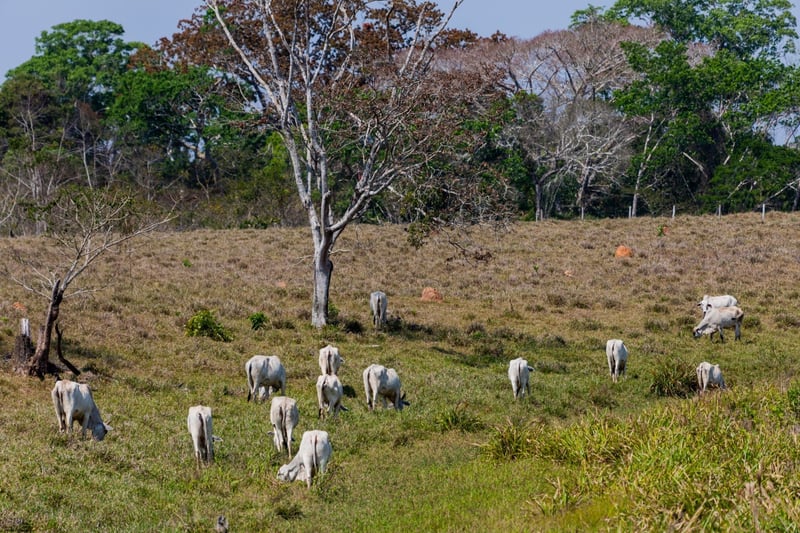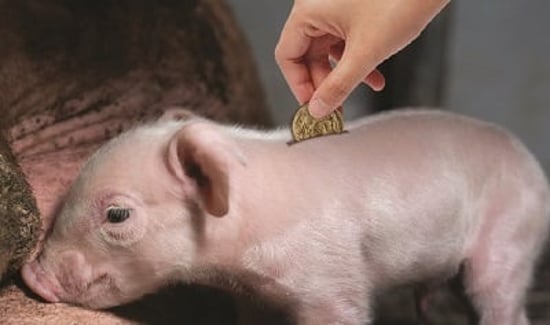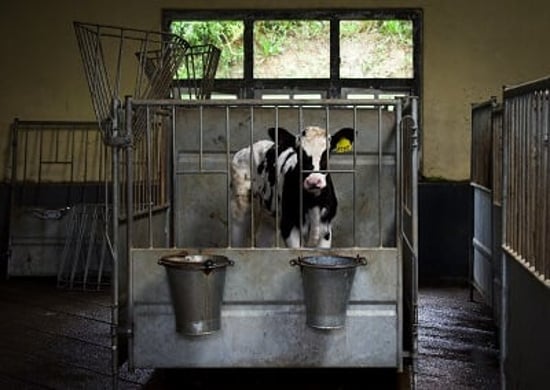
Big banks fund drivers of Amazon destruction and animal cruelty
News
Europe’s top ten financial institutions are investing in companies at high risk of being linked to deforestation in the Amazon and Cerrado.
Banks such as Rabobank in the Netherlands, and Standard Chartered in the UK, are bankrolling companies linked to cattle and soya supply chains in high deforestation regions, for cattle and soya production that feeds factory farmed animals in Europe and around the world.
The vast deforested areas are used for cattle production and soya crops for factory farm animal feed, according to our new report: Big meat. Big bucks. Bigger harm.
The report suggests that up to $98 billion USD has been invested since 2015, meaning consumers are unknowingly fueling these unethical and carbon-intensive business practices with their savings and pensions.
Killing wild animals
Alarmingly, these financial institutions may be linked to the clearance of irreplaceable rainforest, which in some cases is even illegal and unregulated. The Amazon, while being a major producer of the world’s oxygen, is also home to millions of species of sentient animals that suffer when their habitat is lost.
Soya is planted in huge swathes in destroyed habitats before being exported to feed factory farmed animals around the world, completing the cycle of cruelty.
Right now, more than 70 billion animals are farmed for food each year – two-thirds on factory farms in conditions that mean they can’t move freely or live naturally.
These animals are treated as mere commodities without even the most basic of needs met.
People are suffering too
While this is a major animal welfare and conservation concern, many of the cattle and soya farmers are exploited too – worked hard, paid poorly, granted minimal rights – making this a human rights issue too.
Jacqueline Mills, head of campaign – animals in farming, World Animal Protection said: ” Reputable names in household banking are betraying their customers’ trust and investing into morally corrupt business – those that destroy habitats, displace wildlife, and participate in the very cruellest of businesses – low-welfare, factory farming.
“Banks should throw their support behind humane and sustainable food systems, not factory farms dependent on destructive animal feed imports. Wild and farmed animals are sentient beings that deserve respect, and banks must be held accountable for their actions.”
We are calling on financial institutions to right this wrong, ensuring they have policies and systems in place such as:
- Traceability to the point of origin within the supply chain, zero tolerance for deforestation, screening and engaging companies, excluding clear offenders and demonstrating transparency.
- Supporting the transition to a humane and sustainable food system by implementing FARMS Initiative farm animal welfare standards as a minimum, halving investments in animal protein by 2040, and phasing out support for monocrops like soya as feed for farm animals.

How factory farming is funded
Factory farming operations are typically financed by banks and investors, who allocate resources to industries that yield maximum profits.

Donate to protect animals
Factory farming traps farmed animals in an endless cycle of abuse and cruelty. This tragedy will only worsen as demand for meat grows globally.